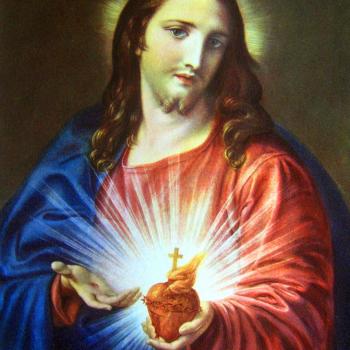It is, of course, a sin against the virtue of justice to spend your Mass singing songs about yourself, since it is to God that we owe our worship. But just in case fear of the Almighty wasn’t enough for you, a story about why this is also a sin against your fellow man:
So I have this friend, Eastern Orthodox, who expressed interest in visiting a Catholic parish near her home. I told her I’d watch for some mutually-convenient occasion, since on Sunday mornings she’s at her church, and thus it’s not so easy to coordinate a visit.
Our opportunity arose, a mid-week Mass honoring a special intention. We went, and it was as spectacular as we’d anticipated. (This was the reason for her curiosity in the first place.) Afterwards we went to the reception, and I had the chance to introduce her to the pastor. I said to him, “This is my Orthodox friend who’s visiting here. I want to commend you, Father, on the liturgy, because you’ve made this parish a place that I can bring an Orthodox friend and not be ashamed to be Catholic.”
Naturally the priest thought I was nuts. Who says something like that? In public no less. He said something polite and then backed away slowly and found other, safer guests to greet.
After he was gone, my friend, who is one of these really caring, sensitive people, inquired, concerned, if I were ashamed to be Catholic.
No, I said. Not at all. It’s just that in a lot of places the liturgy is really awful.
She let it rest.
We ate brownies for a bit, and then she said, “Actually, that’s why I left the Catholic Church. It felt like we were always singing all about me, me, me. When I went to an Orthodox liturgy, it was like I could finally worship God for the first time in my life.” She said that she also liked the fact that her church devotes time during the liturgy to honoring the saints in a way that lets her learn about their lives, something she would probably never do at home.
I told her that yep, that’s why I can’t endure some Catholic parishes. I spend all week worshiping Jennifer, and I really can’t fathom why anyone would want to spend an hour on Sunday morning singing songs about me.
(I know that’s a shocking accusation, but it’s the reality: When you sing one of those hymns to the virtues of the congregation, if I’m in that congregation, that means you’re singing a hymn to my virtues. Let me assure you, your confidence is misplaced.)
***
This is not about musical styles, or Latin-vs.-English, or anything like that. It’s about what’s at the heart of your worship. People who leave the Catholic Church for Evangelical congregations often say the same thing. The Protestant style of the liturgy is radically different than my friend’s Orthodox church, but the need it meets is the same: Everyone of us has a need to worship God and be pulled into a right relationship with him.
The question former Catholics had to wrangle with in departing was not, “Is this other congregation the guardian of the truth, appointed by God to be His instrument of salvation?”
That’s not a question people are even able to form, if they are busy asking themselves, “Why the heck am I standing here singing this awful tune about how great my parish is when I happen to know that I can find nicer friends at the sports bar?”
And then you go down the road to some Evangelical or Orthodox congregation and people are 100% focused on giving God His full due, and it’s so startling and refreshing and such an answer to your deepest longings, that it never even occurs to you there might be doctrinal difficulties. Surely the people who spend their Sunday praising God rather than themselves are the people who are closer to the truth, right?
***
So this is why the liturgy matters not just for our own souls but for everyone else’s. If you are charged with reforming a wayward parish or diocese and you’ve ever wondered whether anyone even cares about your struggle, now you know. People care.

Artwork: Jan van Eyck (circa 1390–1441) [Public domain], via Wikimedia Commons












